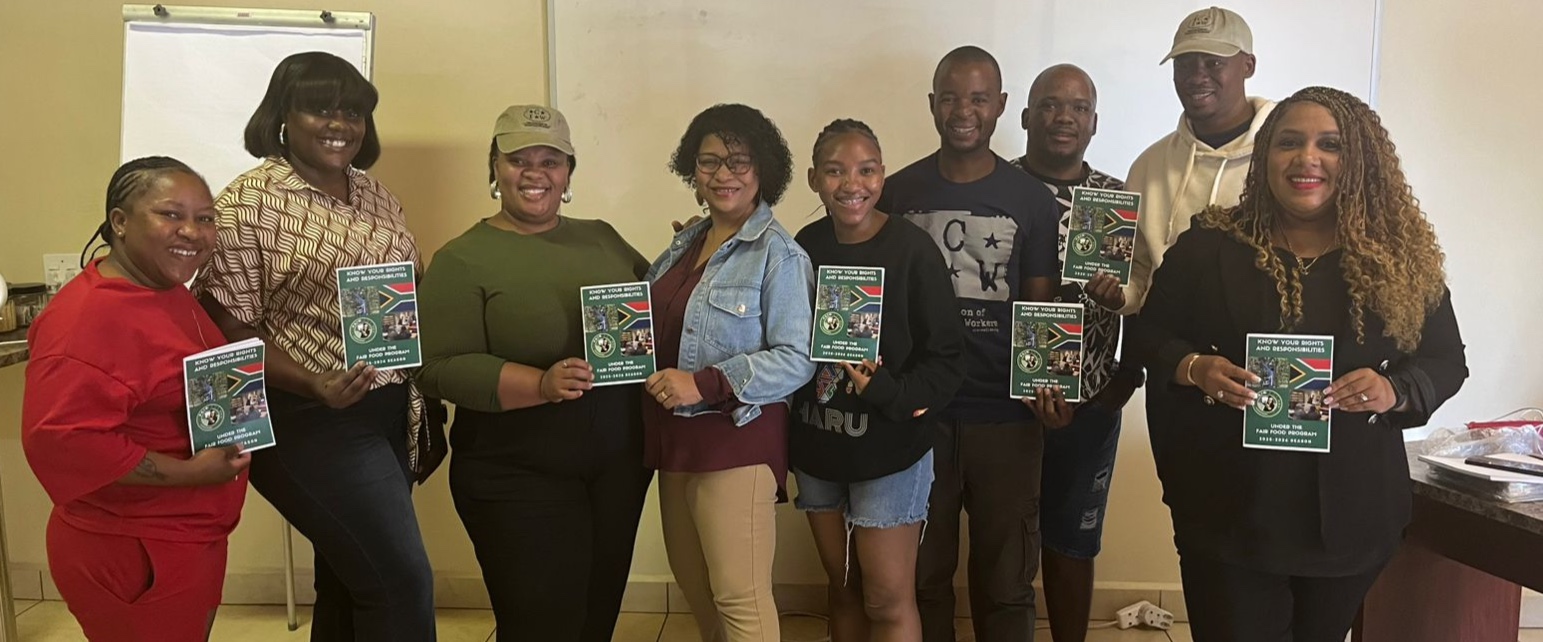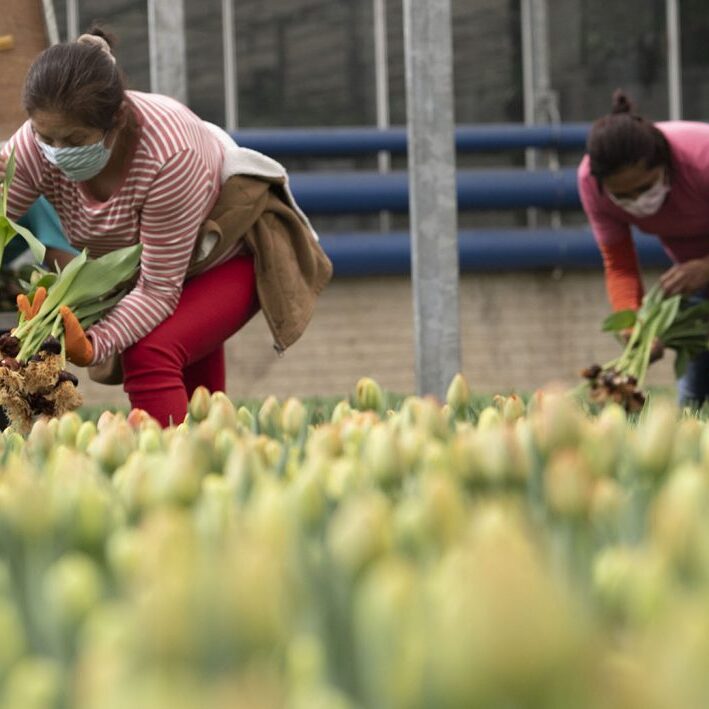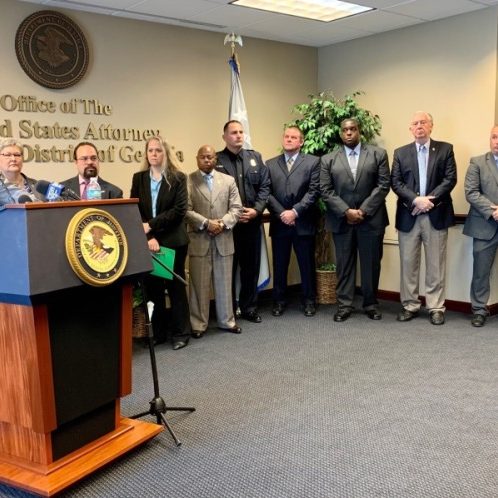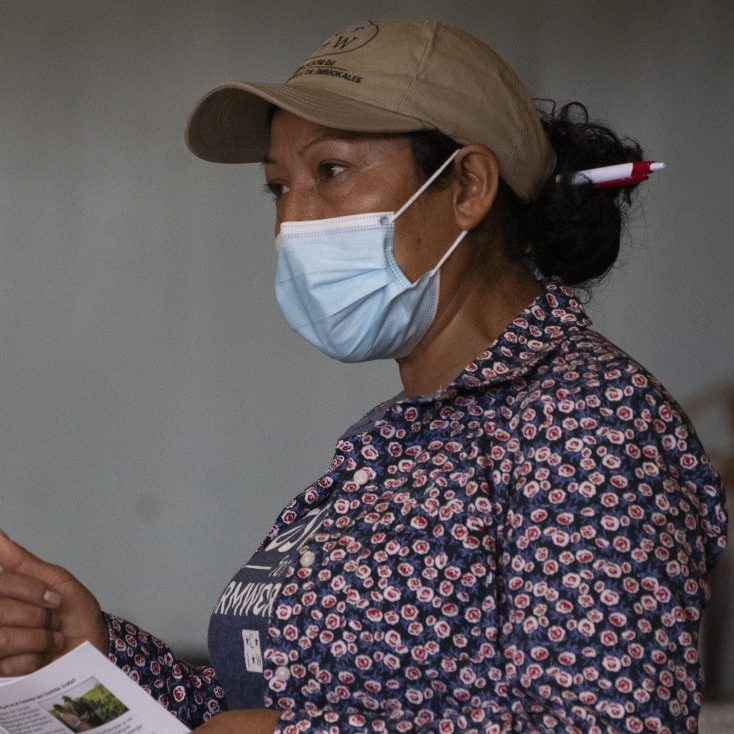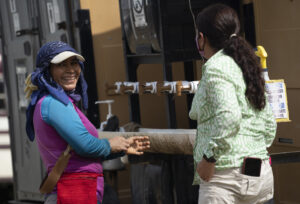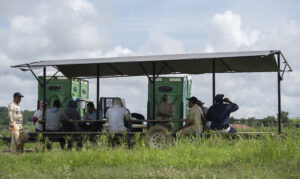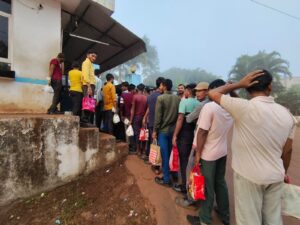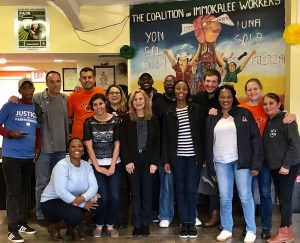Lupe Gonzalo, farmworker and CIW staff member: "Every country is different, but human rights must be implemented equally. We are all human beings, and wherever we are, we must be protected."
Celeste Cloete-Carolus, FFP South Africa: "When I first became a part of the FFP almost a year ago, I was amazed at the way the Program is designed to restore dignity to workers..."
As the Coalition of Immokalee Workers' Fair Food Program ramps up its expansion across the United States -- spreading its roots further by the day in the country where it was born -- the award-winning program is also branching out into more and more countries around the globe. Thanks to the groundbreaking partnership among workers, growers, and buyers at the heart of the program, the FFP has been operating for the past two years in South Africa's cut flower sector, with more farms across the country in multiple new crops set to join in the coming months!
As the reach of the pioneering, worker-driven human rights program continues to grow, it is essential that the FFP remain firmly grounded in every new local context in which it operates. For an international expansion as ambitious as ours in South Africa, that means fostering a close working relationship with local human rights and worker organizations that have a deep understanding of the many cultures, languages, and longstanding political and economic dynamics that are interwoven to form the national fabric there. Those essential relationships allow us to learn from local human rights leaders and benefit from their insights, while at the same time sharing with them the lessons, methods, and protocols born of the FFP's own rich history, as we come together to create a Fair Food Program every bit as rigorous and effective as the one born in Florida's tomato fields 15 years ago, but tailored to the reality of South Africa's fields and orchards today.
This past week, the US and South Africa FFP teams met for a 4-day virtual training workshop and exchange to do just that. We're excited to share with you a few reflections and photos from this remarkable international training experience!
One area of focus of the 4-day exchange was on what is known in the field of social change as "Popular Education", an approach to education that employs drawings, theater, and video to capture a topic in a form that prompts -- when led effectively -- a participatory, group discussion on the impact of the issue on people's lives, its root causes, and the ideas that might help solve the problem depicted in the prompt. It is a particularly effective education methodology in communities where people with multiple cultures and languages live side-by-side, communities like Immokalee and other migrant worker communities around the globe at the bottom of corporate supply chains.
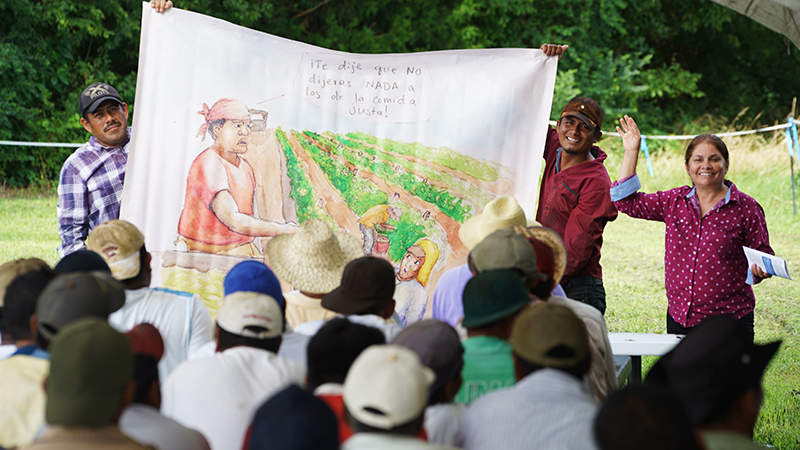
The CIW has used Popular Education for three decades in Immokalee and around the United States, starting well before the FFP was born, in early community meetings as workers came together and formed the CIW in the 1990s, and continuing after the program's launch in 2010, in the crucial worker-to-worker education sessions held on each participating farm. Those sessions are critical to the FFP's unique success, as they serve to inform workers of their rights under the program and how to defend their rights when they are violated, helping workers play their role in the FFP as the frontline monitors of their own rights. Indeed, for many workers on FFP farms, their first in-person experience with the program occurs when a team of CIW educators visits the farm for a worker-to-worker education session, like that pictured above. These education sessions, which are held on-the-farm and on-the-clock, have proven immensely helpful for workers over the last 15 years, and carrying the practice forward as the program expands overseas is equally important to guaranteeing the worker-driven power of the model in its newest context.

Because many farmworkers' initial contact with the Fair Food Program occurs in this discussion centered around a drawing, much of the recent training worksop focused on sharing this crucial education technology at the heart of the FFP's success. First, in the weeks ahead of the workshop, the FFP teams from the US and South Africa collaborated to create a new education drawing about safe drinking water (above). Then, when it was finally time for the workshop itself to begin, the CIW education team spoke with their South African counterparts across the globe via Zoom in an animated discussion about their use of Popular Education and the best practices they've developed over the years, including tips on how to draw out the workers' own experience with the issue through guided discussion, and how to always bring the conversation back from the lived experience in the fields to the rights in the FFP's code of conduct. The team of educators in South Africa also had an opportunity to practice leading education sessions (below) to further hone the presentation for the South African context, with feedback from Immokalee.
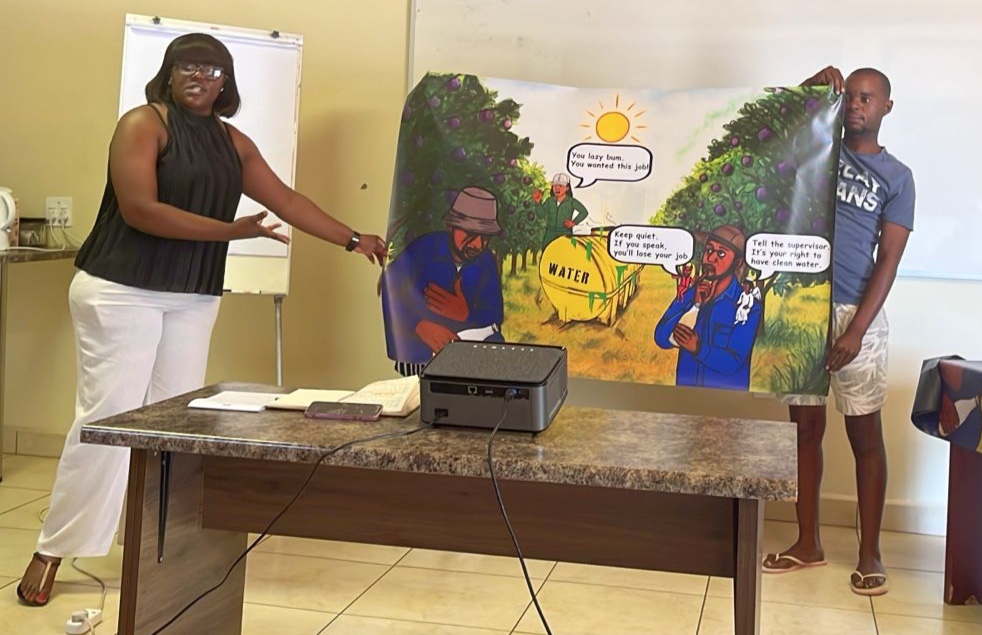
From there, the South Africa and US-based FFP teams continued to work together to translate and record the training video that workers watch at the moment they are hired to work on participating FFP farms -- which for 15 years had been available only in Spanish, English and Haitian Creole -- into the languages many farmworkers speak in South Africa: Afrikaans, Xhosa, and Setswana.

Lupe Gonzalo, a farmworker and senior staff member of the CIW, was a part of the 4-day training and shares her reflections below:
"A dream that Immokalee workers had: to work in conditions where human rights were respected. We fought for years, and with effort and sacrifice, and now that dream has been fulfilled. For the first time, thousands of workers are seen as human beings, not as production machines. Through the Fair Food Program, not only in Florida but in other states, and many crops, they are now harvested and produced by the hands of respected workers.
As a farmworker, I feel very proud and happy to share our experience with people in South Africa, training them on how to conduct education sessions as part of the FFP now that the Fair Food Program has expanded. It is very important for us that this Program, and the Worker-driven Social Responsibility model, continues to expand because beyond these protections, human rights violations continue to occur in the industry.
When we met with the people of South Africa, it was a wonderful experience. They understood and were committed to doing the work, and that gives us confidence that they will do a good job. We in Immokalee will continue to support them and learn from each other.
Human rights must be a requirement that we workers must demand, which is why training other groups to carry out the Program's education is essential. Every country is different, but human rights must be implemented equally. We are all human beings, and wherever we are, we must be protected."
Though the distance between the US and South Africa is vast, the experience of working as a farmworker beyond the FFP's gold standard protections is still eerily similar: wage theft; long hours toiling in punishing heat; no shade, rest breaks, or water; routine sexual and verbal harassment and abuse without recourse; and underlying it all, a pervasive climate of fear that prevents workers from standing up against the abuse.
The FFP has emerged as a powerful global human rights program with solutions that can scale and adapt to meet this human rights crisis head-on, providing enforceable protections that stand as a bulwark against exploitation no matter the country or context.
We want to leave you with some words from Celeste Cloete-Carolus, a national human rights activist and the in-Country Consultant for the FFSC in South Africa:
“We have a saying in South Africa: Nothing about us, without us! The Fair Food Program did not just come to South Africa to be duplicated, but to understand our context and our struggles, and to adapt to our situation. When I first became a part of the FFP almost a year ago, I was amazed at the way the Program is designed to restore dignity to workers by empowering them to be able to stand up and realize their rights. In South Africa, we have various Corporate Social Responsibility certifications, which do not actually focus on the voices of the workers. In contrast, the FFP is entirely worker-driven and wields the power of the market to not just protect workers, but modernize the industry as well.
My hope and dream for South Africa is that this worker-driven model expand into the entire agricultural sector and be able to right the wrongs which some of our farmworkers are still exposed to daily in South Africa. We are grateful and recognize the importance of this Program in our country."
Stay tuned for more updates about the growth other FFP and WSR model!

